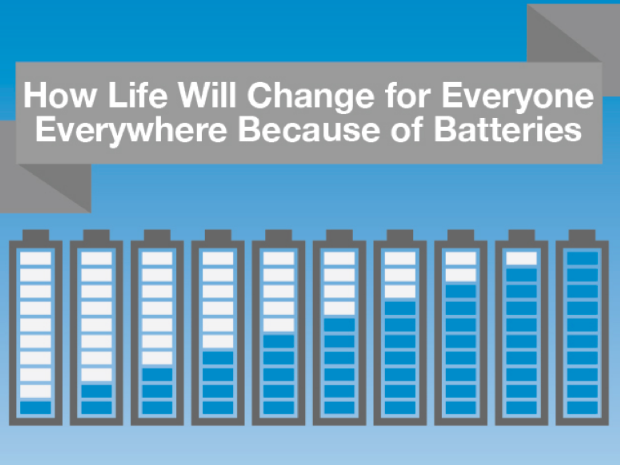
The battery is the ubiquitous energy storage unit that powers nearly every aspect of an increasingly mobile, gadget-dependent consumer society, but many of the larger infrastructural systems on which whole regions rely also depend on battery power. The growing consumer need to charge power sources for everything from telephones to power tools to hearing aids—and to do so as quickly and seamlessly as possible to minimize downtimes—is admittedly still a “first-world problem.” It will have become a whole-world problem, however, by the time electric vehicles (EVs) become cost-competitive with their fossil-fueled counterparts on the consumer market. Already, the Panasonic 75kWh-battery option in Tesla’s 2018 Model 3 gives the EV a very competitive distance range of 310 miles or 500 kilometers. Ironically, the lithium-ion battery pack that to date has kept EVs out of price competitivity is now driving their predicted rapid rise to future dominance in transportation sectors worldwide.
How Lithium Is Changing The World
Thanks to technological innovations like Transcontinental Advanced Coatings’ z-flo® Conductive Film, electronic devices powered by lithium-ion batteries can now “live” longer, go farther, and run faster on a single charge. Increasing energy efficiency while decreasing waste is a guiding principle of sustainability. Without a fundamental shift in energy generation and usage, the future would be as finite as the fossil fuel supply. One technological key to unlocking the energy revolution lies in the ever-growing storage potential and falling cost of lithium-ion technology.
Cell phones, laptops, and other power-hungry devices already use lithium-based batteries to deliver long hours of access on demand for information, tools, and services. As their production improves, and as new, potentially better storage options emerge such as magnesium-ion batteries, experts predict that sustainably-sourced electricity will overtake fossil fuel use for far more than just consumer automobiles. Everything—from electric grids to urban transit to air, rail, and sea transportation—will be powered by lithium-ion batteries, and likely faster than most people realize. Bloomberg New Energy Finance estimates that by 2040, 530 million EVs will alone command 5 percent of the world’s terawatt hour (TWh) consumption, or 1,8000 TWh, which is 300 percent more than the 6 TWh EVs used in 2018. Given market predictions that the cost of lithium-ion batteries will already drop another 50 percent by 2020, while their energy density simultaneously leaps ahead by 20 percent, the proliferation of EVs may well dramatically increase much faster.
The Next Big Wave: Magnesium-Ion
Unfortunately, lithium-ion batteries use a liquid electrolyte, which means they can also overheat and explode, as some airline passengers have discovered. The risk for an explosion is compounded when lithium-powered EVs are involved in collisions. Energy research is turning to magnesium scandium selenide spinel to develop a perfect solid-state electrolyte. The future of mobile power storage, and of energy use, lies in the advances in the applications that long-lasting, solid-state magnesium-ion batteries will foster. Once perfected, they will likely offer even higher energy density than lithium-ion batteries presently can. Higher storage capacities for renewable energy will allow us to push the power envelope well past today’s horizons in terms not just of distance and speed, but ultimately of space and time as well.
At Transcontinental Advanced Coatings, our z-flo® brand of advanced coatings is recognized around the world for delivering high-performance conductivity and reliability for applications ranging from medical diagnostic devices to lithium-ion batteries. As applications advance and evolve, we remain dedicated to providing the advanced coating solutions needed to make sure they operate correctly and efficiently. Learn more about our specific product constructions for our z-flo® line.